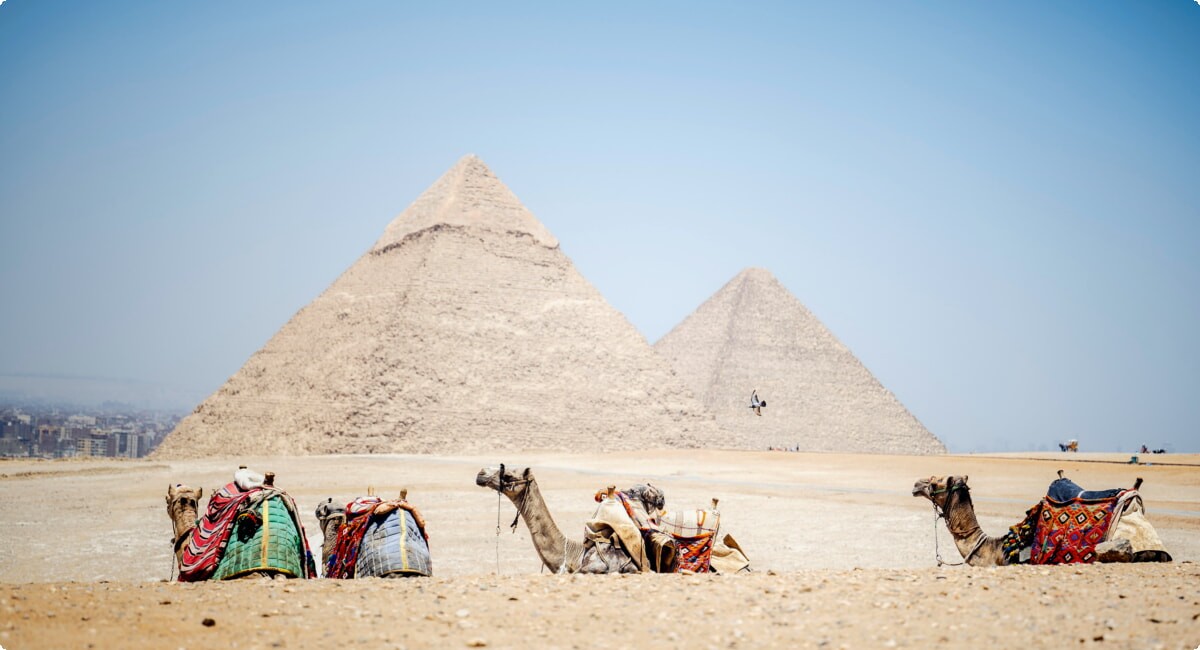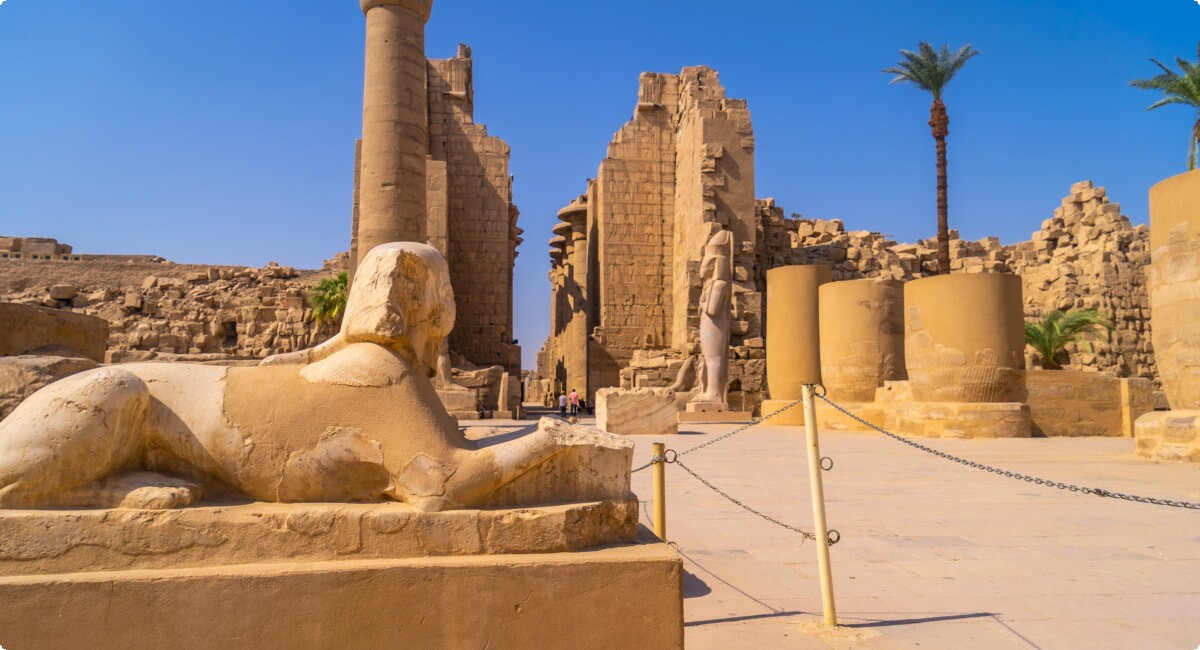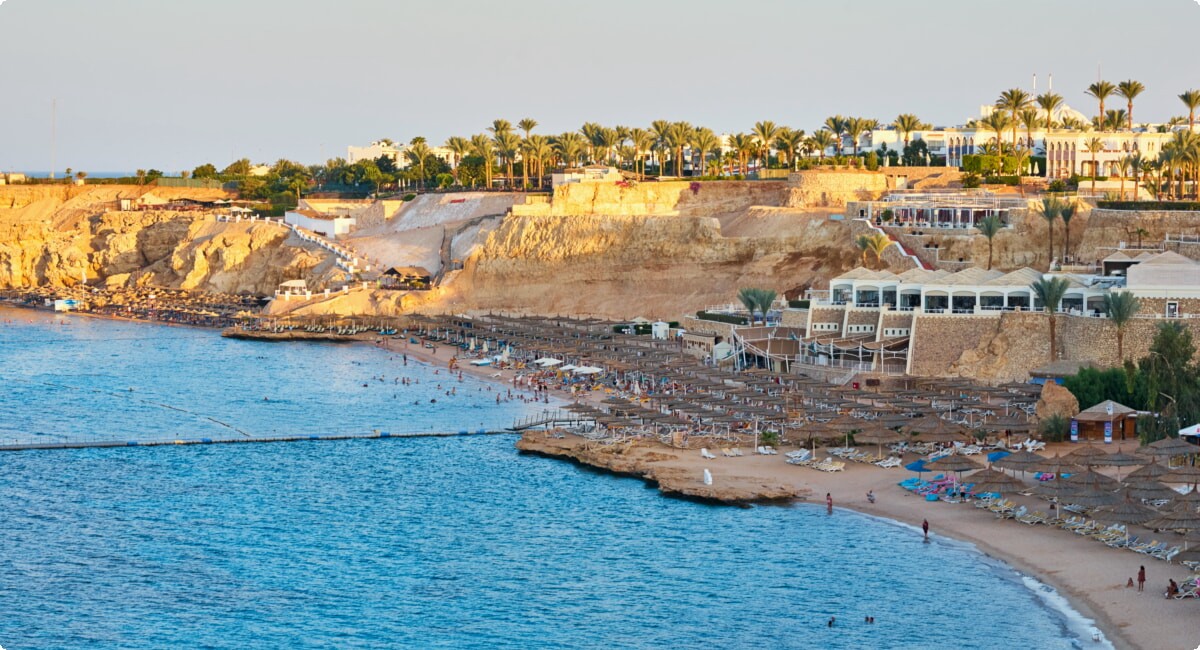How to get around Egypt for your travels

Traveling around Egypt is like stepping into a living museum, which is filled with lively cities, ancient monuments, and stunning landscapes. Egypt is a great tourist center whether you are moving around the streets of Cairo, cruising the serene waters of the Nile, or trekking to the far reaches of Abu Simbel.
Egypt offers a wide range of transportation options for travelers looking to uncover its historical treasures or enjoy the beauty of its coastlines. Here's a guide to help you navigate the country efficiently and enjoy every moment of your trip.
Transportation in Egypt
By Bus

For budget-conscious travelers, buses are a popular way to get around Egypt. They connect most cities and towns and offer a reliable, though sometimes slower, option for getting across the country. Egypt has five main bus companies that operate long-distance routes, each covering different regions of the country. However, bus journeys are often delayed, especially in and out of Cairo, where traffic can add hours to your travel time.
Buses, trains, and transfers throughout Egypt offer convenient, affordable transportation to many tourist spots, though you should be prepared for long waits and possibly cold air-conditioning.
By Transfers
Traveling with a private driver is arguably the most comfortable and efficient way to get around Egypt. Private transfers allow you to visit key attractions like the Pyramids, the temples of Luxor, and the Valley of the Kings without worrying about moving along busy streets or deciphering road signs. Your driver’s local knowledge of roads and culture ensures you’ll avoid traffic jams and get to your destinations quickly and safely.
Air-conditioned cars offer comfort, and drop-off points close to major sites mean you will spend less time walking in the heat. It’s the ideal option if you want to relax and focus on enjoying the ancient ruins, and busy markets of Egypt.
By Train

Egypt’s rail network is another reliable way to get around, especially when traveling along the Nile. Trains run from Cairo to Alexandria and Aswan, passing through several other key destinations like Luxor. Most tourists choose the air-conditioned express trains, which are faster and more comfortable. Trains provide a scenic view of the countryside and are often much more affordable than flying.
For longer distances, such as between Cairo and Luxor or Aswan, travelers are usually restricted to specific “tourist trains,” two of which offer sleeper services. Always double-check the train schedules and routes, as these can change unexpectedly.
Essential Things to Know Before Going to Egypt
Visa and Currency
To enter Egypt, you'll need a tourist visa, which costs $25. You can obtain it either online through Visa2Egypt or in person upon arrival. If you opt for the in-person route, make sure to bring cash in U.S. dollars, as no other currency or card payments are accepted. Once you arrive at the airport, head to the bank office, located to the right of the passport check line, to purchase your visa.
If you’re applying for a visa online, be careful not to fall for fake websites. Bookaway is a legitimate platform, that can help in your travels. The visa processing time can take up to a week, though many receive theirs within 48 hours. With your e-visa, you can proceed straight to passport control, where an immigration officer will stamp your passport and keep the e-visa.
The local currency in Egypt is the Egyptian Pound (EGP). For travelers from places like the UK or Italy, it’s important to note that Egyptian pounds cannot be obtained before arriving in Egypt. ATMs are available at airports and across cities for currency withdrawal.
Cultural Norms and Restrictions
Egypt is a predominantly Muslim country, and although it is more liberal than some other Muslim nations, it’s recommended that travelers dress conservatively, especially in Cairo and Alexandria. In particular, when visiting religious sites or Islamic areas, modest clothing is appreciated.
Smoking is allowed almost everywhere, and some restaurants offer non-smoking areas if needed. Be mindful of your surroundings, especially when taking photos in public places. Photography is strictly prohibited near military or government buildings, and failure to follow this rule could lead to serious consequences, such as arrest.
It’s also important to be aware that bringing or buying drugs in Egypt is illegal and heavily penalized.
Entry Tickets and Discounts
Unlike many destinations, Egypt does not offer online tickets for its attractions. All entry tickets, such as those for the Pyramids or Luxor temples, must be purchased at the attraction itself. Authentic tickets come with a hologram for verification.

If you’re a student over 30 years old, your ISIC card may not be accepted at most sites, though some exceptions exist. For instance, in Luxor, the card is typically refused, except for the Luxor Temple and the Egyptian Museum.
Best Time to Visit Egypt
The ideal time to visit Egypt is between October and April when temperatures are cooler and more comfortable for sightseeing. Peak tourist season falls between December and February, with daytime temperatures ranging from 14°C to 18°C (57°F to 64°F). Prices for flights, hotels, and tours also tend to be higher during this period.
July and August are the hottest months, with temperatures above 40°C (104°F) in cities like Luxor and Aswan. Unless you’re familiar with heat, it’s best to avoid visiting during this time. For a more budget-friendly and less crowded trip, late April or early May can offer a good balance of weather and cost.
Is Egypt Worth Visiting?
The answer is a resounding yes. Egypt may not yet have reached the “easy-going” standards of many tourist destinations like Spain or Italy, but it is a country rich in charm and unique experiences. Although independent travel can sometimes feel complicated, the rewards are great. Travelers are advised to plan and research before going to ensure smooth movement, especially in cities like Cairo, where local customs and infrastructure can be different from what many might expect.

Despite its somewhat rough reputation in some media, Egypt is an adventure well worth taking. The opportunity to witness the world’s most iconic ancient landmarks, explore its deserts, or relax on the beaches of the Red Sea is something no traveler should miss.
Conclusion
Traveling around Egypt can be an unforgettable experience, filled with the wonder of ancient history and the vibrant culture of the present. Whether you choose to take a bus, book a private transfer, or ride the train, each mode of transportation will provide a stunning view of the country.
Bookaway and other travel platforms can assist with planning and making arrangements, ensuring that your journey is as smooth as possible. Remember, patience and flexibility are key to navigating Egypt, but the rewards of experiencing this incredible country make it all worthwhile.